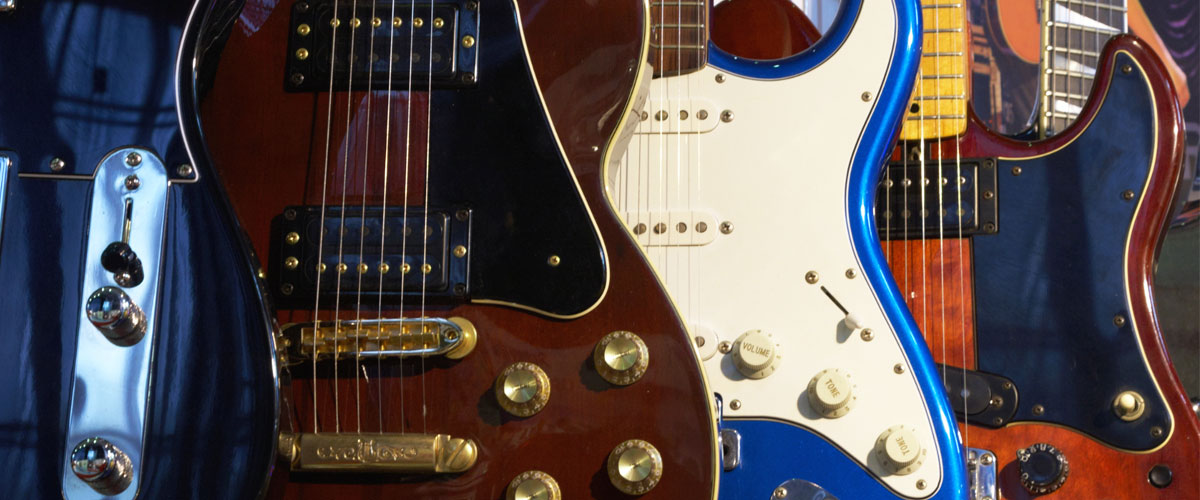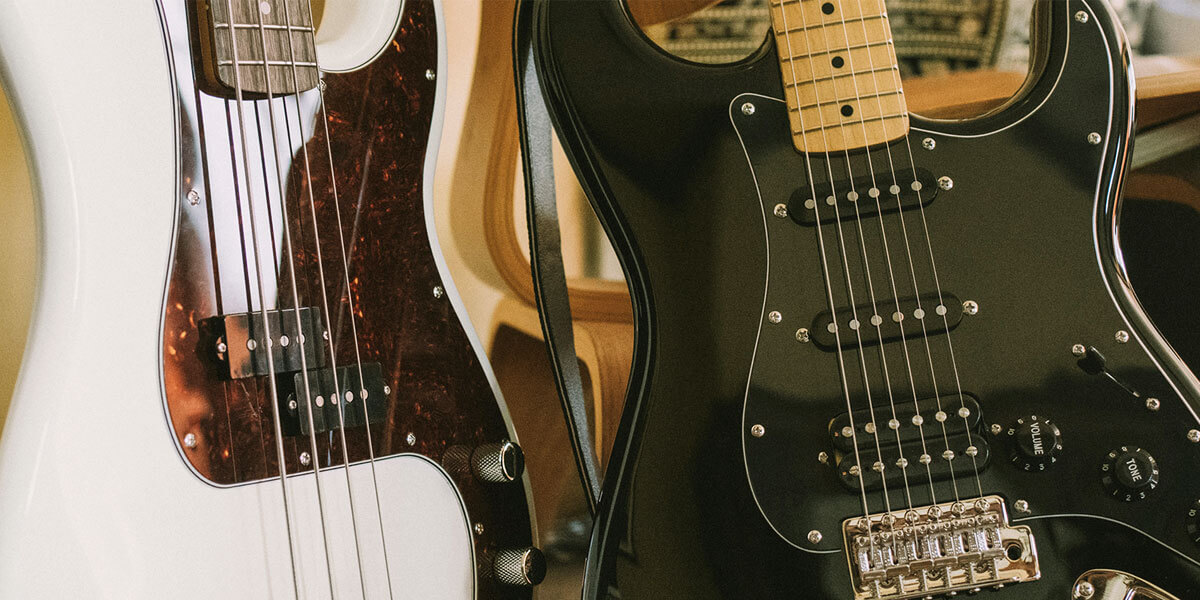Hello, fellow music explorers! Today, we find ourselves at a melodious crossroads: bass guitar vs electric guitar. As a budding musician, the choice between these two rock’n’roll titans can shape your musical journey. It’s like choosing your sonic alter-ego, your harmonic partner-in-crime. Each carries a unique rhythm and role, vital threads in the vibrant tapestry of any band.
So, let’s dive deep, break down the key differences, and tune into the sweet symphony of information to help you decide which six-string (or four) destiny is the right fit for you.
Basics of bass and electric guitar
- The bass guitar, usually with a solid or semi-hollow body, is the heartbeat of any band. Typically strung with four robust strings (E, A, D, G from low to high), it boasts a long scale length, producing a deep, resonant sound. Its thick strings vibrate at low frequencies, making your heartbeat sync with its rhythm. Simply put, the bass sets the groove, providing a harmonic foundation that holds the music together.
- On the other hand, the electric guitar, the rockstar of the music world, features a versatile and iconic solid body. This six-stringed wonder (E, A, D, G, B, E from low to high), known for its shorter scale, offers ease of play and flexible string manipulation. The thinner strings enable an impressive range of techniques like bending and vibrato. But it’s the combination of pickups, amps, and effects that unveils its wide tonal range, creating diverse sounds that can steal the show!.
Similarities and differences: bass vs electric guitar

Six strings vs. four, thinner vs. thicker, longer scale length vs. shorter – electric guitar vs. bass spar in a friendly rivalry. Their sonic identities, too, diverge. The bass, with its deep, pulsing rhythm, sets the foundation. In contrast, with its soaring, sharp tones, the electric guitar often leads the melody.
Despite this difference between bass and guitar, their harmony within a musical group is unquestionable.
I have prepared a brief comparison:
| Electric Guitar | Bass Guitar | |
|---|---|---|
| Strings | 6 | 4 |
| Scale Length | Shorter | Longer |
| String Thickness | Thinner | Thicker |
| Sonic Characteristics | Higher, sharp tones | Lower, deep tones |
What a fascinating dichotomy! The difference between these instruments creates a musical harmony that resonates in all genres and styles.
Playing technique and skill development

Exploring the bass – a harmony in low tones
Electric guitar – a symphony of techniques
On the other hand, electric guitar players have a myriad of techniques at their disposal, such as pulling, tapping, and sweeping. These methods contribute to the richly textured leads and harmonies that are often the signature of the electric guitar. Furthermore, the physical layout of the guitar, with its six strings and a broader range of notes, necessitates more intricate finger coordination.
Remember, neither instrument is better or worse, they’re simply different. They provide unique textures and tones that mold the fabric of our favorite tunes. That’s the beauty of the difference between bass and guitar!
FAQ
Which instrument is better suited for beginners?
In the eternal melody match-up, there’s no clear winner between bass and electric guitars for novices. While bass guitars often have fewer strings, they require more finger strength. Electric guitars, with more strings and chords, might demand more practice initially. Pick the one that resonates with your musical tastes and goals. It’s your show!
Can I use the same amplifiers and effects pedals for bass and electric guitars interchangeably?
Yes, but with a “sound” warning! While you technically can interchange amps and pedals, they’re specially designed for their respective instruments. For example, using a guitar amp for bass can lead to poor sound quality and might even damage your gear. Do not forget: the right tool for the right riff!











